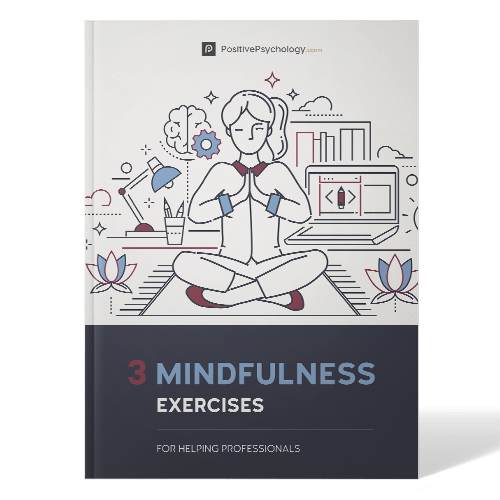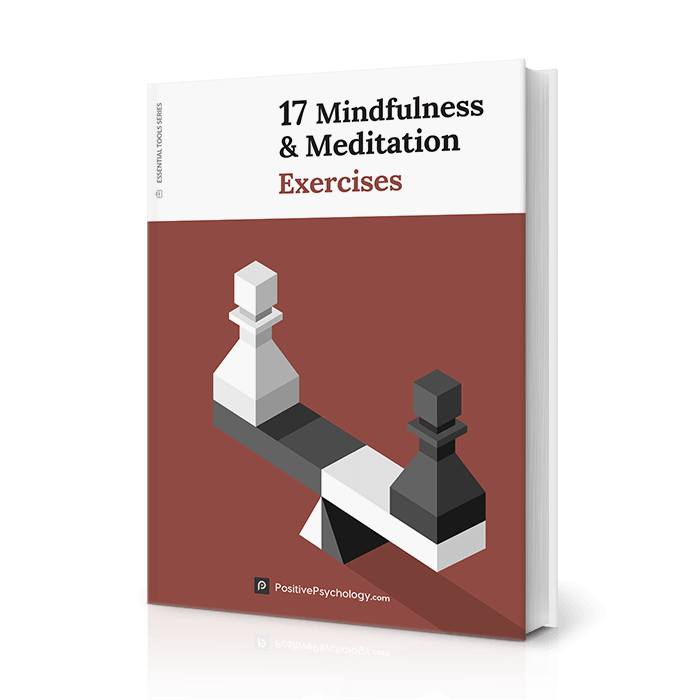10 Reasons Why People Don’t Meditate (And How to Respond)
 You’re probably familiar with meditation’s many positive outcomes.
You’re probably familiar with meditation’s many positive outcomes.
In fact, you probably extoll its virtues to anyone who you believe could benefit from it, which is just about anyone.
But have you ever recommended meditation to a friend, a family member, or maybe a client and been met with resistance?
Not everyone knows about the benefits of meditation, and lots of people have a hazy or inaccurate picture of what it is.
If you’ve heard any of the 10 responses listed below, you know there is some misinformation floating around about meditation.
People from all walks of life are practicing meditation and mindfulness – executives, health professionals, teachers, celebrities, soldiers, and athletes.
In the past few years, pieces on meditation have inundated popular media, leading to thousands – maybe even millions – of people giving it a shot. Still, there are many people who either don’t try it or don’t continue after making a brief, cursory attempt.
Here are some of the most common responses people have to the question “Have you tried meditation?”
Before you read on, we thought you might like to download our three Mindfulness Exercises for free. These science-based, comprehensive exercises will not only help you cultivate a sense of inner peace throughout your daily life, but also give you the tools to enhance the mindfulness of your clients, students, or employees.
This Article Contains:
- Excuse 1 – “What’s the point? It’s just a New Age fad.”
- Excuse 2 – “Meditation is just a fancy name for relaxation, napping, or self-hypnosis.”
- Excuse 3 – “Meditation is too hard. I can’t calm my mind.”
- Excuse 4 – “It takes years to truly benefit from it.”
- Excuse 5 – “I don’t have time to meditate.”
- Excuse 6 – “Meditation is boring.”
- Excuse 7 – “You need to be spiritual to meditate.”
- Excuse 8 – “Meditation is escapism.”
- Excuse 9 – “Meditation is selfish.”
- Excuse 10 – “It will make me emotionless.”
- A Take-Home Message
- References
Excuse 1 – “What’s the point? It’s just a New Age fad.”
Meditation is not just a fad; it’s something that people all over the world have been doing for centuries (Meditation Association of Australia, n.d.). People have been practicing meditation in search of peace, happiness, transformation, or to have more control over their lives. See our related article on the History of Meditation.
The point of meditation is to gain control over our most precious tool: our mind. The state of our mind is the most crucial factor in determining our success and our happiness. A person can have “everything” and yet feel miserable, anxious, inadequate, or any of a host of negative internal states.
Conversely, a person can have very little and yet feel at peace and content in their mind. In athletic performance, business, and relationships, we see this again and again. No amount of skill or resources will bring us success and happiness if our mindset does not allow for it.
Meditation helps us master our mind by working on our attention. You can think of attention as a sort of “flashlight” of consciousness. Whatever we shine our attention beam on will be noticed and given a chance to grow. Whatever we withdraw our attention from is left in the dark and begins to wane.
By mastering our ability to intentionally direct our attention and keep it there, and removing our attention from anything that is negative or not serving us, we can begin to gain clarity about our reality and goals.
The point of meditation is to train our attention. As a byproduct of the practice, we also get several health benefits, stress release, and a sense of peace and contentment (Chiesa & Serretti, 2009; Horowitz, 2010).
Meditation’s ease of use and many benefits make it a powerful and lasting tool, not just a fad.
Excuse – 2 “Meditation is just a fancy name for relaxation, napping, or self-hypnosis.”

Meditation uses relaxation coupled with regulation of attention and introspection to guide us to deeper states of consciousness (Harris, 2014).
Some people conflate the many guided “body scan” meditations with meditation in general. Although body scans do indeed incorporate mindfulness meditation, full meditation goes a bit deeper and helps to prevent stress in the first place.
In other words, relaxation is an appetizer; meditation is the main course.
Meditation is also not hypnosis. Self-hypnosis is usually induced by verbal self-suggestion (spoken or in the mind), where we direct ourselves to think, see, and feel certain things (Brown, Forte, Rich, & Epstein, 1983). It makes use of imagination and the creative power of the mind. We use affirmations, imagination, and visualization to create a particular state of mind.
It does not challenge our conditioning but works from within our conditioning, and its purpose is to alter our mental states. Many guided meditations might more appropriately be termed self-hypnosis or relaxation.
In meditation, we typically don’t use imagination or evoke emotions (except for some types of meditation, like loving-kindness meditation). We usually focus our attention either on a particular object (focused attention meditation) or on observing the reality of the present moment, without any attempt to add to it or alter it (open-monitoring meditation).
The purpose is to quiet the mind and allow it to perceive reality for what it is. It brings us insight, enlightenment, and comfortable silence in the mind.
Excuse 3 – “Meditation is too hard. I can’t calm my mind.”
Unlike many other endeavors in life, the success of our meditation efforts depends entirely on our attitude. It doesn’t matter how much skill we have or how much we’ve practiced meditation; if we go into it without strong expectations or an attachment to rigid goals and timeframes, then meditation can be a success.
Meditation is not a thing; it’s a process. This process brings several benefits, but it is also its own benefit. The key is to learn to enjoy the process. Practice letting go of self-criticism, comparison, and expectations as soon as they arise. Once you figure out that meditation is not an achievement to collect, you may enjoy the process more.
People often feel that meditation is hard when they believe they should be fighting their thoughts or actively trying to empty the mind (Harris, 2014).
Mindful meditation is more about noticing thoughts when they enter the head and noticing again when they pass, without getting too attached or drawn into them.
There is no fight, repression, or forcefulness about meditation. Fighting with thoughts will simply strengthen them and lead us to an agitated state. With gentle refocusing, the mind can slowly calm down.
Meditation is simply the process of continuously regulating our attention. The mind may empty as a result, but holding on to that expectation or working toward it as a goal can make easy, relaxed mindfulness more elusive. Rather than trying to “empty the mind,” mindfulness meditation involves placing our attention on a single point, moment after moment. With practice, mindfulness can leave us in a calmer and more stable and enlightened state (Harris, 2014).
When someone tells you they don’t meditate because it’s too hard, give them this mental exercise:
Imagine you are trying to get some work done, and suddenly some music starts playing next door. You can hear it clearly, but you can’t do anything about it, so you try to “stop hearing” it. The more you try to stop hearing it, the louder and more obnoxious it seems. However, if you make an effort to focus your mind on something else, you will eventually find that you forgot all about the music.
Don’t think about emptying the mind or making it quiet. Simply follow the meditation instructions and let everything else be.
Some people believe that they need to start with a quiet mind to meditate. They’ll say, “My mind is too restless; there is no way I can meditate.” Does that reasoning ring any bells?
Yet, this is like saying that being fit is a requirement for going to the gym.
Having a “calm mind” is not a requirement for meditation. In fact, having a restless mind is even more reason to meditate.
When you meditate for a while, you will realize that nobody has an inherently calm mind.
Excuse 4 – “It takes years to truly benefit from it.”

Of course, a Buddhist monk with 20,000 hours of meditation will have reaped more benefits than a person who started doing 10 minutes a day a month ago. Still, meditation has benefits at every level, from beginners to long-time practitioners.
If you want to attain enlightenment or achieve a fearless state beyond all suffering, then it will likely take a long time to reach your goal. However, if all you want is better health and a bit more peace and balance in your life, then here’s the good news: many people start experiencing these after a few weeks.
So, if someone laments the long-term nature of meditation’s impact on your life, remind them that at least some of meditation’s many benefits are immediate, for the practice itself is the benefit.
Many practitioners find that they feel at least a little bit better after each meditation session, whether it is more relaxed, focused, rested, or all three. And the even better news: this life-changing tool is free; all it costs is your attention.
The reason why you are struggling to meditate – Sadhguru
Excuse 5 – “I don’t have time to meditate.”
If a client tells you they don’t have time to meditate, ask them to try this exercise:
During one week, take note of all the unproductive time that you spend in front of a screen (TV, smartphone, or tablet). Set aside just 20% of that time for meditation, and you’ll have more than enough time to meditate at least once a day.
Some busy executives have not missed a meditation in years. If meditation becomes a priority in your life, you will make time for it. You can start with as little as a minute a day and gradually increase your involvement.
Some people even notice that they have more time after they start meditating. Suddenly, they gain clarity about what is important in their day-to-day life, and they stop spending time on things that don’t truly serve them.
Excuse 6 – “Meditation is boring.”

If you try meditation expecting to have an exciting and entertaining experience, you will probably find it boring. Meditation isn’t really about fun, but that’s not a bad thing.
Many people practice mindfulness meditation because they find that the peace and enjoyment gained are unlike anything else they experience in daily life. Meditating is a rare pleasure, one that does not depend on anybody else and that can offer new experiences even after decades of practice.
Dopamine, a “pleasure chemical” in the brain, is released when we engage in pleasurable activities like sex, eating good food, watching or playing sports, taking drugs, earning money, listening to music, etc. With time and repeated exposure to the same pleasures, a tolerance for dopamine is built into the neurons, and the reward for the repeated pleasure gradually diminishes.
Eat your favorite ice cream three times a day, every day, and you’ll know what I mean. Psychologists refer to this concept as “hedonic adaptation.”
At this point, you either continue eating ice cream every day out of sheer habit – even though it’s not good for you and no longer brings you a meaningful reward – or you switch to another source of pleasure.
This is true of most pleasure-inducing activities; however, research has shown that the dopamine produced by meditation does not suffer from the “down-regulation” of pleasure experienced in sex, food, money, etc. (Sharp, 2013).
Tell the “but meditation is boring” people to try again, without a hungry mind or strong expectations. Expectations can be barriers to mindfulness. As much as possible, encourage meditation beginners to leave their expectations aside and go for it with an open mind and optimistic attitude.
Meditation is similar to going to the gym. Running in place and picking up heavy objects are not exciting activities. If you exercise only for the sake of the surface-level results (nicer body), it can be hard to stay motivated through boring and strict training. However, if you learn to enjoy the process itself and work to get better at it, you may be more likely to keep at it in the long run.
Excuse 7 – “You need to be spiritual to meditate.”
Many people may be put off by meditation’s association with religion or spirituality.
Meditation is an ancient practice, and it was indeed created/discovered within religious contexts, to achieve spiritual goals; however, for most techniques – especially those prevalent in the West – there is nothing inherently religious about them (Harris, 2014).
If you want to use meditation as a simple body–mind exercise, you are in good company. Many people practice meditation exclusively for health and wellbeing benefits.
You can practice meditation without needing to believe in anything in particular. A Christian or a Muslim can practice it without any conflict with their faith. The same goes for atheists and agnostics. Practicing meditation will not make you religious, just as doing stretches will not make you a yogi.
There are thousands, if not millions, of Christians who meditate (Read more about Christian Meditation).
You can also assure any hesitant beginners that they don’t need to follow any rituals or wear unique clothing to meditate. Some people choose to do so because they find it helps them prepare their mind for meditation, but they are absolutely not essential to the practice.
Also, let them know that meditation doesn’t require the inclusion of a mantra. There are several different meditation techniques, many of which don’t prescribe mantra repetition.
Excuse 8 – “Meditation is escapism.”

Anyone who has done meditation for a decent length of time knows that it’s the other way around: meditation makes many things that you are trying to run away from – in your life and in yourself – painfully clear.
Escapism typically involves distraction (e.g., TV, social media, games) or unconsciousness/hindered consciousness (e.g., alcohol and drugs).
On the other hand, meditation removes all distractions and encourages heightened awareness, which makes it a pretty ineffective escape plan. If you start meditation with a “runaway” attitude, you will soon find that you don’t run far. Everything you try to escape from is right there, in your mind, waiting for you.
However, you can point out to skeptics that skilled meditators actually can escape some of their problems with meditation. Once a practitioner gets skilled enough, they can bring their attention to a peaceful place, inside their consciousness, which is beyond all problems (Buddharakkhita, 1977).
However, the real problem solver here is the practitioner’s attitude, not their actions. Meditation is not a fix-all; it simply provides a tool to control one’s mind and attention. What a practitioner does with it is their choice.
Meditation helps you get to know yourself and assists you in seeing things more clearly and practicing greater control over your mind.
It is exceedingly rare to find practitioners who use meditation to try to escape their problems; instead, they find that it enables them to be more self-aware and more in control of their internal resources.
In conclusion, you can counter this point by explaining that meditation is not running away from your problems; indeed, it might be able to help you see those problems with greater clarity.
Excuse 9 – “Meditation is selfish.”
Some people may see meditation as an attempt to achieve a selfish, isolated form of happiness.
Practitioners often see it differently, setting aside time for themselves and engaging in self-care. Meditation need not be any more selfish than eating, sleeping, or taking a shower. For many, it becomes an essential daily activity that allows us to live full, functional, and meaningful lives.
Meditation may not produce a tangible product; but many practitioners find that its benefits radiate outward, positively affecting those around them and the output of their efforts in their personal and work life (Luberto et al., 2018).
Excuse 10 – “It will make me emotionless.”

However, the goal of meditation is not to remove or deny your emotions, but rather to make you less of a slave to them and help you gain a greater understanding of them.
With practice, you can follow the wave of an emotion or simply let it be and hold space for it. This is one of the potential benefits that meditation has to offer (Charoensukmongkol, 2014).
Meditation enables us to be less reactive to our emotions but does not remove them (Harris, 2014). You won’t lose the capacity to feel; instead, your feelings will be even more apparent than before.
A Take-Home Message
In this article, we outlined some of the major misconceptions that your clients or acquaintances might have about the practice of meditation. You may find that people are hesitant to engage in meditation for a wide variety of reasons, but many can be broken down, mitigated, or dismissed entirely.
We hope you will be able to use the knowledge in this article to craft an uplifting and encouraging response to someone who holds one of these common myths about meditation, allowing word about the benefits of meditation to spread to an even wider audience.
If you are ready to dive in, this meditation techniques for beginners article is a great place to start.
Keep in mind that there are people that do not find meditation beneficial. They might find something else more suitable, such as mindfulness yoga or mindful walking meditation. Ultimately, you have to respect other’s opinion about mindfulness, and accept their views will differ from yours.
We’d love to know your thoughts on the subject. What other excuses or justifications have you heard for why people don’t practice meditation? What additional information do you share with those apprehensive of beginning a meditation practice?
How do you convince your clients to give it a shot, or another shot if the first time wasn’t successful? Let us know in the comments.
As always, thanks for reading.
We hope you enjoyed reading this article. Don’t forget to download our three Mindfulness Exercises for free.
- Brown, D., Forte, M., Rich, P., & Epstein, G. (1983). Phenomenological differences among self hypnosis, mindfulness meditation, and imaging. Imagination, Cognition and Personality, 2(4), 291-309.
- Buddharakkhita, A. (1977). What meditation implies. Kandy, Sri Lanka: Buddhist Publication Society.
- Charoensukmongkol, P. (2014). Benefits of mindfulness meditation on emotional intelligence, general self-efficacy, and perceived stress: Evidence from Thailand. Journal of Spirituality in Mental Health, 16(3), 171-192.
- Chiesa, A., & Serretti, A. (2009). Mindfulness-based stress reduction for stress management in healthy people: A review and meta-analysis. The Journal of Alternative and Complementary Medicine, 15(5), 593-600.
- Harris, S. (2014). Waking up: A guide to spirituality without religion. New York, NY: Simon and Schuster.
- Horowitz, S. (2010). Health benefits of meditation: What the newest research shows. Medicine, 16, 223-228.
- Hunt, C. A., Hoffman, M. A., Mohr, J. J., & Williams, A. L. (2020). Assessing perceived barriers to meditation: the determinants of meditation practice inventory-revised (DMPI-R). Mindfulness, 11, 1139-1149.
- Luberto, C. M., Shinday, N., Song, R., Philpotts, L. L., Park, E. R., Fricchione, G. L., & Yeh, G. Y. (2018). A systematic review and meta-analysis of the effects of meditation on empathy, compassion, and prosocial behaviors. Mindfulness, 9(3), 708-724.
- Meditation Association of Australia. (n.d.). A brief history of meditation. Retrieved from https://meditationaustralia.org.au/a-history-of-meditation/
- Sharp, P. E. (2014). Meditation-induced bliss viewed as release from conditioned neural (thought) patterns that block reward signals in the brain pleasure center. Religion, Brain & Behavior, 4(3), 202-229.
Let us know your thoughts
Read other articles by their category
- Body & Brain (50)
- Coaching & Application (57)
- Compassion (26)
- Counseling (51)
- Emotional Intelligence (24)
- Gratitude (18)
- Grief & Bereavement (21)
- Happiness & SWB (40)
- Meaning & Values (26)
- Meditation (20)
- Mindfulness (45)
- Motivation & Goals (45)
- Optimism & Mindset (34)
- Positive CBT (29)
- Positive Communication (20)
- Positive Education (47)
- Positive Emotions (33)
- Positive Leadership (18)
- Positive Parenting (4)
- Positive Psychology (33)
- Positive Workplace (37)
- Productivity (17)
- Relationships (46)
- Resilience & Coping (38)
- Self Awareness (21)
- Self Esteem (38)
- Strengths & Virtues (32)
- Stress & Burnout Prevention (34)
- Theory & Books (46)
- Therapy Exercises (37)
- Types of Therapy (64)






What our readers think
Seems to me that what is being said is that meditation can’t fail. Only you can fail meditation. That’s not helpful to folks in distress. Like it is supposed to cure every ailment. I’m glad it works for many people. It doesn’t work for a lot of people either.
The blog is creative and useful to guide us how to practice positive mindful exercise .
How about number 11?
I simply have no interest and/or don’t want to. I’d rather just lie in the dark and hope to drift off to sleep. I’ve tried meditating but all.it did was wind me up and increases my stress levels off the scale. Yoga did exactly the same.
Insurance does not pay for meditation or mindfulness, see Medicare non-coverage due to lack of evidence. “After review of this issue, CMS has concluded that the evidence concerning the medical efficacy of TM is incomplete at best and does not demonstrate effectiveness and that a professional level of skill is not required for the training of patients to engage in TM.”
To have it paid under Medicare Advantage plan was not core commended under community and state government agencies.
I simply can’t do it
Specially in this horrible world that is crumbling down
No way, it is not for everyone
I need escapism, watch cartoons, fun videos, anything that can put me out if focusing in anything like myself
Sorry but it is simply how I feel about it…
Very nice article.. This is time more meditative people required on this earth.